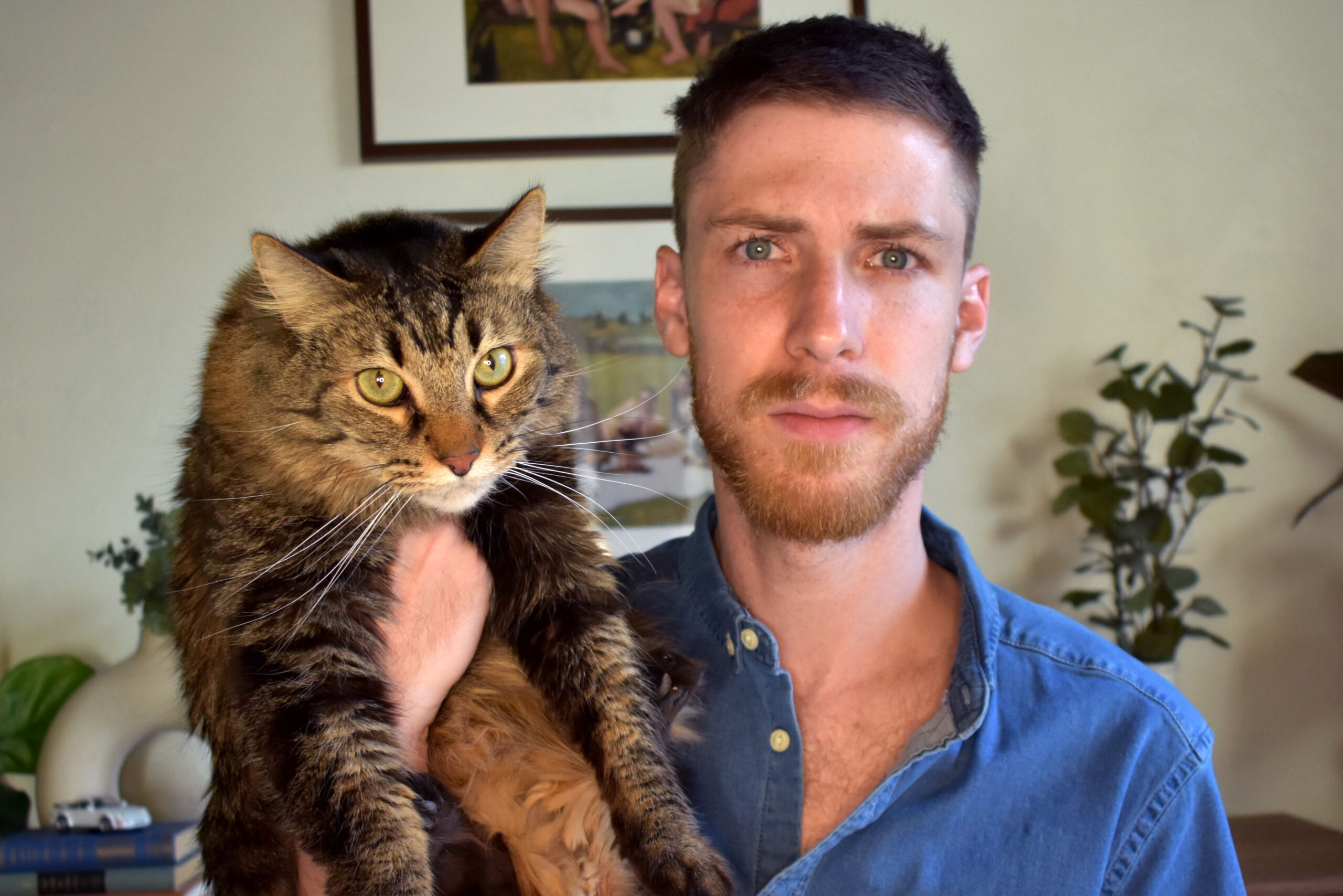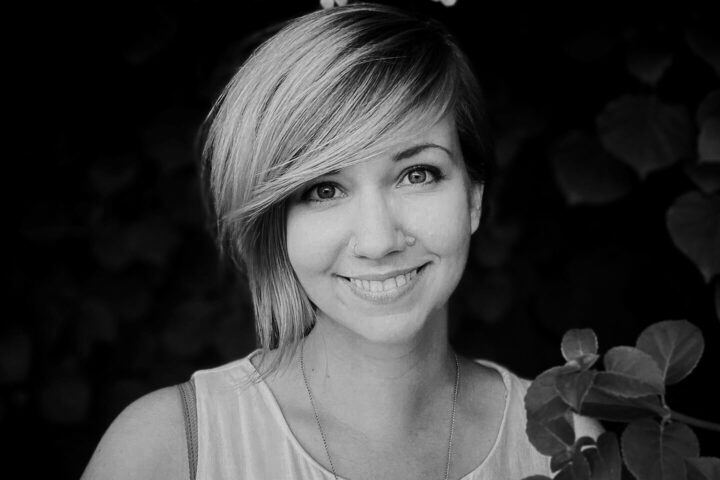The first time I loved him,
his exaggerated ears flattened
as he peeked out the window pane.
A robin pecked at bits and birdseed,
while, inside, he traced her jig, slunk
so low his whiskers combed the floor,
unaware his hind betrayed him, swaying
and upright. He shimmied, shimmied,
spasmed into a pounce—clawed &
bushy-tailed—at the red-bellied bird.
He crashed against glass, then scuttled
the stairs to hide in the dark.
My father told me the saddest stories
are not about broken things—no,
the saddest stories are the happy ones
told in past tense because we know
everything is broken and we have
to see it untouched first, we have
to do the breaking ourselves.
I think that’s true.
The moment I loved him
he was already past tense, and I
already expected broken things—
the slur of his aging body,
the way he’d misremember
a movement, the way his skin
would clench firm to skeleton,
the way each sleep would look
like a destination, the way life
quietly turns life-like, and how
that is maybe the saddest part,
or, no, the way he’d become
precious, which is the gentle way
to say ruined, or, no, the way
I’m saying goodbye
and he’s still right here.
Published in Cider Press Review, Volume 23, Issue 3.
See all items about Reese Conner


 Reese Conner is the winner of the 2020 Cider Press Review Editors’ Prize for his manuscript The Body He Left Behind. He received his M.F.A. from Arizona State University, where he has continued to teach composition and poetry workshops. His work appears or is forthcoming in Tin House, The Missouri Review, Rattle, Ninth Letter, Cimarron Review, New Ohio Review, and elsewhere. Reese is an Assistant Poetry Editor for Fifth Wednesday Journal. He received the Turner Prize from the Academy of American Poets, the Mabelle A. Lyon Poetry Award, and the now-defunct Chili Pepper from Rate My Professor. He was a finalist for the 2019 New American Poetry Prize, the 2018 Cider Press Review Book Award, and his poetry has been nominated for a Pushcart.
Reese Conner is the winner of the 2020 Cider Press Review Editors’ Prize for his manuscript The Body He Left Behind. He received his M.F.A. from Arizona State University, where he has continued to teach composition and poetry workshops. His work appears or is forthcoming in Tin House, The Missouri Review, Rattle, Ninth Letter, Cimarron Review, New Ohio Review, and elsewhere. Reese is an Assistant Poetry Editor for Fifth Wednesday Journal. He received the Turner Prize from the Academy of American Poets, the Mabelle A. Lyon Poetry Award, and the now-defunct Chili Pepper from Rate My Professor. He was a finalist for the 2019 New American Poetry Prize, the 2018 Cider Press Review Book Award, and his poetry has been nominated for a Pushcart.


